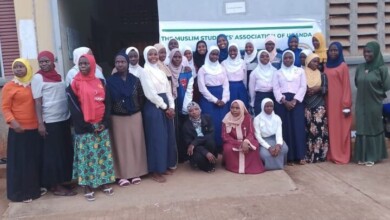Antimicrobial resistance: A one health challenge demanding public action

by Nashira Asiimwe
In modern times, with lots of medical progress, there’s a looming problem threatening our best medical weapons: Antimicrobial Resistance (AMR). AMR is a global crisis that poses a severe public health challenge, and we all need to work together to tackle this health problem. “AMR happens when germs like bacteria, viruses and fungi develop the ability to defeat the drugs designed to kill them”, making standard treatments ineffective. This not only makes it harder to treat infections but also puts medical procedures like surgeries and chemotherapy at risk because they rely on the prevention and treatment of infections. AMR is a naturally occurring process but is made worse by our practices. For example, in the past, chloroquine was the drug of choice for malaria treatment. With time, its efficacy against malaria germs was so low that it had to be substituted. So, what happens when there is no replacement?
AMR is not confined to human health alone; it’s a challenge that also affects animals, plants, and the environment—making it a true one-health challenge. For instance, some diseases affect humans and animals similarly (zoonotic diseases like Anthrax/ Brucella). At the same time, some animals carry germs that can be spread to humans without necessarily making the animal sick (vectors like snails for bilharzia). Additionally, most germs that affect humans and animals are similar in structure to those that affect plants. Thus, the same antimicrobials (internationally, drugs in the aminoglycoside group) are approved for treating human, animal and plant bacterial infections. So, misuse or overuse of antibiotics in any of those dimensions significantly contributes to the AMR crisis.
Human, animal, and environmental health interconnectedness necessitates a unified approach to curb the growing AMR threat. Below is the public’s role in delaying AMR.
Human health: always finish the prescribed antimicrobial drug course even if the symptoms subside. Never share your medicine dose with any other person or even a relative. Trust the chosen doctor; if they recommend any test before treatment, please do as instructed. Never apply undue pressure to the doctor into prescribing certain medicines. Never self-medicate or go to the drug outlet to request medication before consulting with an approved prescriber within the countries laws. Only buy medicines from authorized outlets. Get vaccinated where vaccines exist. Extensively share this information about AMR within your circles to create awareness. Lastly, seek to learn more from the right sources.
Animal health: seek medical advice and proper diagnosis from approved prescribers by the law (veterinary officers and assistant veterinary officers) for your animals before purchasing any medicines. Never use human medicines and agrochemicals for animal health. Upon receiving the medication, ensure that the whole dose is administered to the animals as guided by the prescriber. Report any disease outbreaks to the district officials and report non-response to medication to the prescribing Vet doctor. Never buy medicines from hawkers or shift markets. Ensure proper disposal of dead animals and animal waste. Finally, follow good farm practices like adequate disinfection before and after accessing animal houses.
Environment health: consult agricultural officers (private or those at the district/sub-country level within the government structure) before you purchase any medicines for your plants. Report disease outbreaks to the district. Never use animal or human drugs in plants. Never use antibacterial growth promotors. Properly wash hands often, and ensure proper personal hygiene in all your endeavours. Report any industries and medical outlets (hospitals) that inappropriately dispose off their waste into the environment, such as water bodies, public rubbish bins, or swamps. Advocate for passing strict laws against inappropriate anti-infective drug use, including policies that regulate the use of antibiotics in agriculture and veterinary medicine or as growth promotors.
AMR is a silent pandemic that requires immediate and sustained action from every corner of society. The public plays a pivotal role in mitigating it. By adopting the above practical steps in our daily lives and advocating for systemic changes, we can collectively safeguard the effectiveness of antimicrobials/ antibiotics for current and future generations, which would significantly contribute to the global fight against AMR. The time for action is now.
The writer is a fellow and member of the Pharmaceutical Society of Uganda.
nashirasiimwe@yahoo.com





